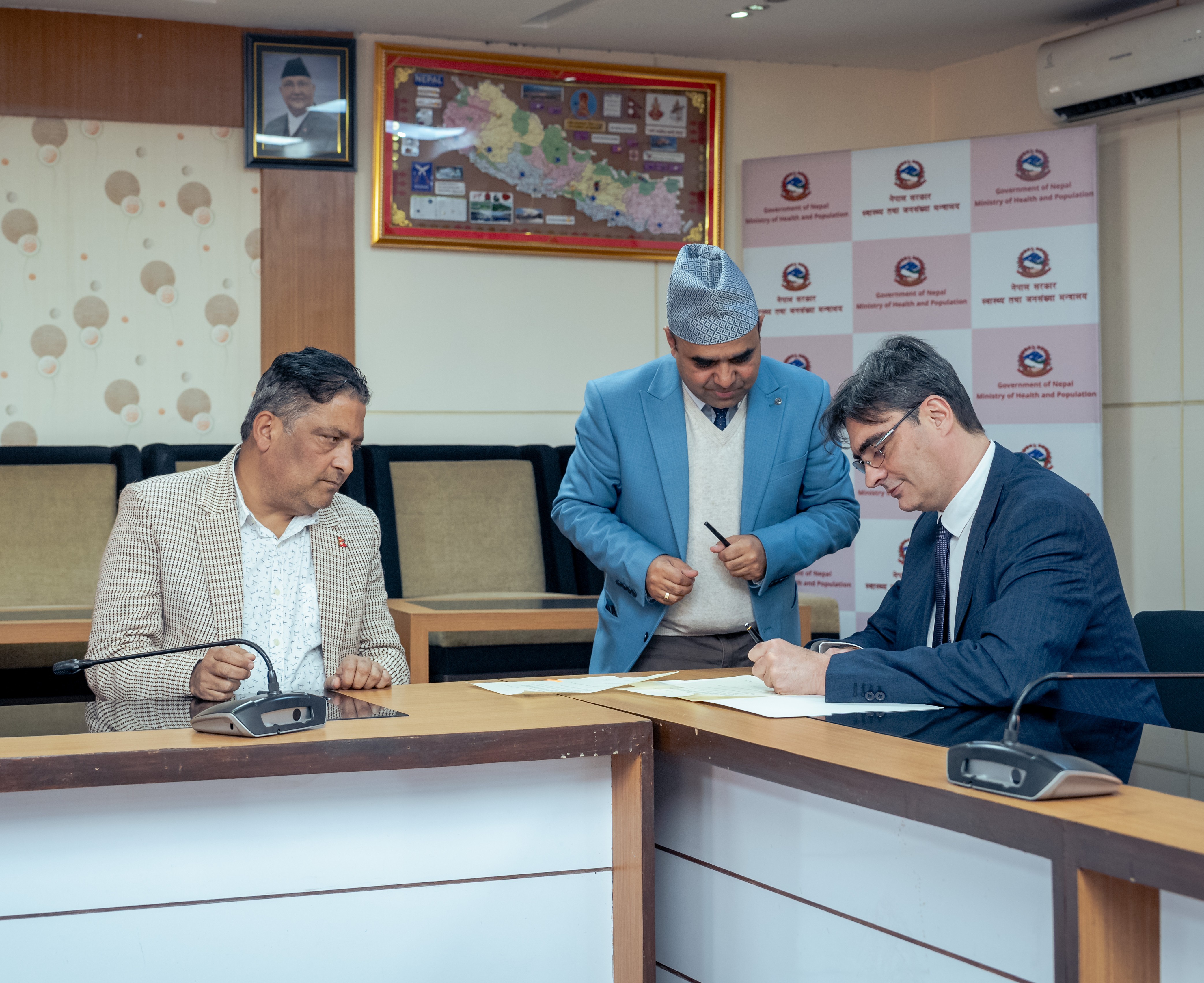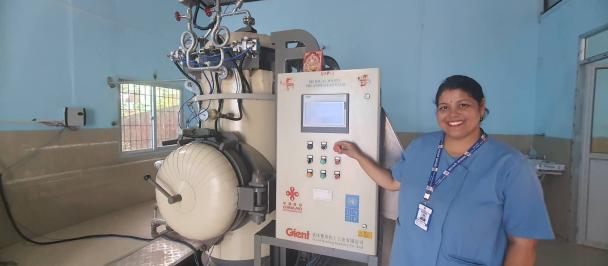Nepal Secures US$ 51.27 Million Global Fund Grant to Tackle HIV, Tuberculosis, and Malaria
February 7, 2025

The signing ceremony of The Global fund with the UNDP Nepal team at the Ministry of Health and Population, Nepal
In a significant move to strengthen its public health infrastructure, Nepal has secured a US$ 51.27 million grant from the Global Fund to combat HIV, Tuberculosis (TB), and Malaria, focusing particularly on migrant populations. This new funding cycle, GC7, was formalized through a partnership between the Ministry of Health and Population (MOHP) and the United Nations Development Program (UNDP).
The grant, effective from February 1, 2025, to July 15, 2027, will enhance Nepal's response to these critical health issues. A portion of the funds will support the country’s efforts to achieve zero new HIV infections, zero AIDS-related deaths, and the elimination of HIV-related inequalities by 2030. The Global Fund’s HIV grant aligns with Nepal’s National HIV Strategic Plan (2021-2026), with an emphasis on reducing new infections, improving treatment adherence, and addressing disparities within vulnerable groups like migrant workers, people who use drugs, and their partners.
The TB component of the grant will support Nepal’s National TB Strategic Plan (2021/22-2025/26) and contribute to global End TB 2035 goals. Focus areas include improving TB case notification, tackling drug-resistant TB, expanding preventive treatments, enhancing diagnostics, and involving the private sector.
The Malaria funding will aid the implementation of the National Malaria Strategic Plan (2014-2025) and help combat indigenous malaria cases.
In addition to disease-specific interventions, the grant emphasizes strengthening community systems, engaging the private sector, and enhancing the overall health governance structure. This will support people-centered, integrated health services and improve monitoring, evaluation, and laboratory systems for evidence-based interventions.

Officials from The Global Fund team and the Ministry of Health and Population Nepal signing papers.
Dr. Roshan Pokhrel, Secretary for Ministry of Health and Population, expressed his optimism about the impact of this partnership, stating, “This generous support from the Global Fund marks a milestone in Nepal’s fight against HIV, Tuberculosis, and Malaria. It will greatly enhance our efforts to protect vulnerable populations, especially migrant workers, and provide them with essential health services. Together with our partners, we are committed to building a healthier, more equitable Nepal, and this grant will significantly contribute to achieving our national and global health goals.”
Nicolas Cantau, Regional Manager, the Global Fund said, “The negotiations of Grant Cycle 7 allocation were a long and challenging process initiated in August 2023 resulting in quality designed grants. We are confident the implementers will prioritize the interventions as per the design, which is always the more challenging part of the implementation”.
“We are grateful for this partnership that will allow Nepal to make significant strides in the fight against HIV, TB, and malaria,” said Ms. Kyoko Yokosuka, UNDP’s Resident Representative in Nepal. “This collaboration is crucial for ensuring a healthier, more equitable future for all, and it represents a key step toward achieving Nepal’s sustainable development goals.”
The grant is also a testament to Nepal’s commitment to universal health coverage, with continued efforts to address these pressing health challenges. Through this initiative, the country is positioning itself for greater progress in the global fight against these diseases while working toward its vision of universal health coverage by 2030.
This partnership between Nepal, the Global Fund, UNDP, and other stakeholders underscores the importance of collective action in achieving lasting health improvements across the nation.

Staff from UNDP Nepal, The Global Fund, and the Ministry of Health and Population, Nepal pose for a group picture


 Locations
Locations